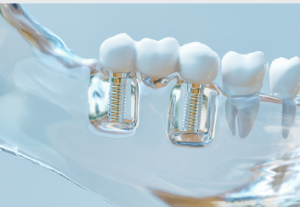If you consider getting dental implants, you may first consider the following things. First, you should be aware of the cost of this procedure. Then, you should be aware of the success rates of dental implants. Surgical procedures and materials used in dental implants are also discussed. It is important to discuss any concerns with your dentist before your procedure. You should also know what to expect before the procedure. After all, dental implants are a major investment. It would be best if you were prepared to undergo some pain during the procedure.
Cost of dental implants
 The cost of Adelaide dental implants depends on the number of teeth you need to replace and the location. If your jawbone is not dense enough, a bone graft may be necessary. These procedures can vary widely, depending on the country and location of the dentist. Cheap implants may look attractive but are less durable and can cost as much as $1,500. The graft can also cost more than the implant itself, so it’s important to compare prices before deciding.
The cost of Adelaide dental implants depends on the number of teeth you need to replace and the location. If your jawbone is not dense enough, a bone graft may be necessary. These procedures can vary widely, depending on the country and location of the dentist. Cheap implants may look attractive but are less durable and can cost as much as $1,500. The graft can also cost more than the implant itself, so it’s important to compare prices before deciding.
Dental implantscost more than dentures and bridges, leading to additional teeth problems and regular replacement. Some people are not candidates for dental implants, and the cost will vary according to the surgeon’s experience and the preliminary treatment. However, a few factors can significantly affect the final cost. While you might be happy with the results of your new smile, you should make sure you can afford the expense. Keeping the cost in mind, choosing a qualified dentist is important.
Success rates of dental implants
One important consideration when deciding whether or not to use dental implants is the success rate. The success rate of dental implants can differ considerably depending on the type of implant used. The first step in determining whether a particular implant is suitable for you is understanding what is involved. Implants may be deemed successful if they are placed in the correct location. However, it may require additional surgery. After a patient receives a dental implant, they must undergo postoperative care to avoid infection.
The success rate of Adelaide dental implants differs based on the mouth area where the missing tooth is located. Patients with dense, healthy jaws have higher success rates than smaller ones. But upper jaw implants are slightly less successful due to their lower density. Other factors affecting implant success include a patient’s health, medications, and local bone quality. Infections and gum disease can also delay the healing process. Smoking and gum disease is also known to reduce the success rate of dental implants.
Surgical procedures
There are two main surgical procedures used for dental implants. The first is the traditional, one-stage procedure, which involves implanting a titanium post. In the second stage, the implant is placed into the bone, fusing with the tissue around it. This procedure is preferred when the patient has poor bone density. The first stage is the most common and is used for cosmetic reasons. The second stage is often used when more than one tooth is missing. A single surgical procedure can involve several implants. A temporary bridge is installed following the implant placement, and a permanent bridge can be attached to the implants.
Materials used in dental implants
There are some materials used in Adelaide dental implants. These materials are chosen based on their physical, chemical, and surface composition properties. They should be biocompatible and durable and offer the patient the best possible esthetic outcome. The most popular materials are titanium and zirconium. Dental implants consist of a titanium post, which screws into the jawbone and forms the foundation of a replacement tooth. This material must have adequate toughness and be biocompatible, fusing with the jawbone.
Titanium is the most commonly used metal in dental implants. Its biocompatibility and corrosion resistance make it a good choice for dental implants. In recent years, a nickel-titanium alloy has become increasingly popular for maxillofacial implants and orthodontic wires. The titanium-nickel alloy is biocompatible and often used to substitute for stainless steel. Titanium alloys are usually the primary materials in dental implants. Secondary materials are usually plated on these primary metals to add other properties.
